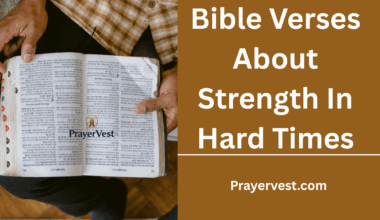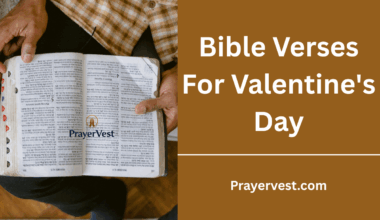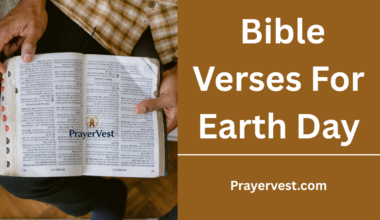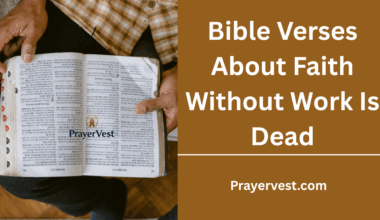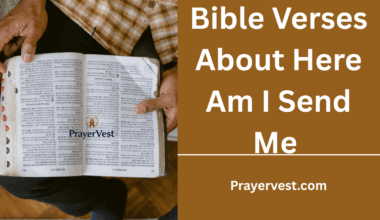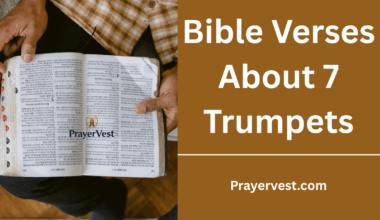One of the most reassuring and well-loved statements in all of Scripture is found in Psalm 23: “The Lord is my Shepherd.” It presents a God who is lovingly concerned in the upbringing and direction of His people rather than aloof or uncaring.
The Lord watches over His children with unwavering love and wisdom, just as a shepherd tends to all of his flock’s needs—guiding them through dark valleys, directing them to verdant pastures, and keeping them safe. God’s intimate relationship with His people is exquisitely depicted in this picture, which shows His unwavering presence, provision, and comfort in all situations.
From Genesis to Revelation, the idea of God as Shepherd appears throughout the Bible. He provides water from the rock and food from heaven as He leads Israel through the wilderness in the Old Testament. The old promises of divine care and redemption are fulfilled in the New Testament when Jesus shows Himself as the Good Shepherd who gives His life for the sheep.
This age-old metaphor serves as a reminder to believers that our lives are not left up to chance; rather, we are led by the One who is aware of our needs, knows our path, and replenishes our hearts when we become weary.
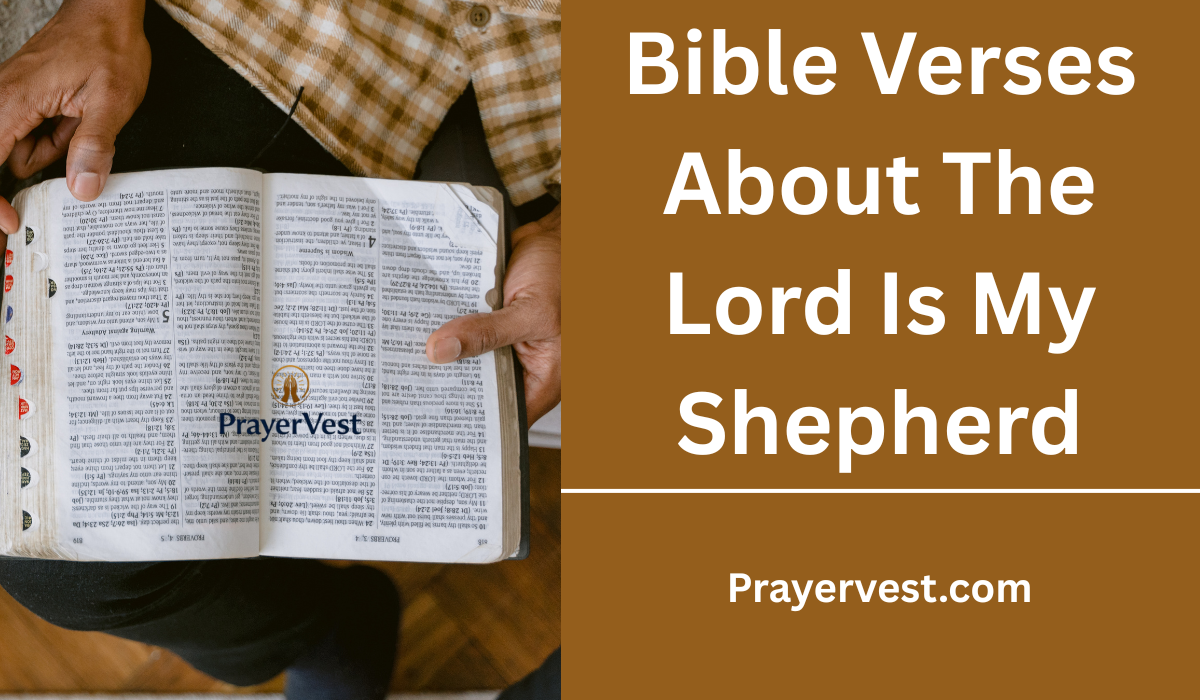

Meditating on Bible verses about the Lord as our Shepherd strengthens faith and renews confidence in His divine care. These scriptures invite us to rest in the assurance that God not only directs our steps but walks beside us through every valley and mountaintop. Whether we face uncertainty, loss, or fear, we can take comfort in knowing that the Shepherd of our souls is both mighty to save and gentle to lead. His presence transforms our anxiety into peace, our confusion into clarity, and our loneliness into security. In Him, we find our perfect guide, protector, and provider—the One who will never forsake His flock.
40 Inspiring Bible Verses About The Lord Is My Shepherd (2026)
1. Psalm 23:1
“The Lord is my shepherd; I shall not want.”
This opening declaration from David beautifully encapsulates the heart of divine trust and provision. By calling the Lord his Shepherd, David expresses a relationship of deep intimacy, care, and total dependence. The image of a shepherd guiding, feeding, and protecting his flock reflects God’s constant oversight and love for His people. To say “I shall not want” is to declare sufficiency in God — a profound contentment that transcends material needs, because when God leads, every lack is met with divine sufficiency.
2. Psalm 23:2
“He maketh me to lie down in green pastures: he leadeth me beside the still waters.”
Here, David paints a scene of peace and restoration. The “green pastures” symbolize nourishment and abundance, while the “still waters” represent calmness and refreshment. The Shepherd provides both physical and spiritual rest, guiding His flock to places of replenishment and tranquility. This verse illustrates God’s desire to restore weary souls and provide serenity amid life’s chaos. His leading is gentle, ensuring His children experience both safety and rest in His presence.
3. Psalm 23:3
“He restoreth my soul: he leadeth me in the paths of righteousness for his name’s sake.”
The Lord’s shepherding goes beyond provision; it includes spiritual renewal. “He restoreth my soul” speaks to emotional and moral revival — the healing of inner weariness and sin-worn hearts. His guidance along “paths of righteousness” reflects His commitment to aligning our lives with His holy standards. It is “for His name’s sake,” emphasizing that God’s guidance is not only for our good but for the honor of His divine character. Our transformation brings glory to the Shepherd’s name.
4. Psalm 23:4
“Yea, though I walk through the valley of the shadow of death, I will fear no evil: for thou art with me; thy rod and thy staff they comfort me.”
This verse embodies courage through divine companionship. Even in life’s darkest valleys — those moments of fear, loss, or mortality — the believer is not alone. The “rod” and “staff” symbolize protection and guidance, reminding us that the Shepherd’s presence dispels fear. God’s authority and nearness provide comfort that surpasses understanding. Death’s shadow cannot consume those who are guided by the eternal light of His presence.
5. Psalm 23:5
“Thou preparest a table before me in the presence of mine enemies: thou anointest my head with oil; my cup runneth over.”
This imagery shifts from a shepherd to a gracious host. God’s provision is lavish — even amid adversity, He sets a table of abundance. The anointing oil signifies favor, consecration, and divine blessing, while the overflowing cup represents joy and satisfaction beyond measure. The believer’s security and honor are upheld not in the absence of enemies, but right before their eyes, testifying to the triumph and generosity of the Shepherd.
6. Psalm 23:6
“Surely goodness and mercy shall follow me all the days of my life: and I will dwell in the house of the Lord for ever.”
David concludes his psalm with assurance of lifelong companionship and eternal communion. “Goodness and mercy” personify God’s faithful presence — His covenantal love that pursues, protects, and blesses continually. To “dwell in the house of the Lord forever” conveys unbroken fellowship and eternal rest in God’s presence. The Shepherd’s care does not end in this life; it extends into eternity, where the soul finds its final home.
7. Isaiah 40:11
“He shall feed his flock like a shepherd: he shall gather the lambs with his arm, and carry them in his bosom.”
This tender portrait of God’s care shows His nurturing nature. He not only provides but gathers and carries the weak close to His heart. His leadership balances strength and gentleness, power and compassion. Like a shepherd who knows each lamb by name, God personally attends to the needs of every believer, holding them securely through every trial and transition of life.
8. John 10:11
“I am the good shepherd: the good shepherd giveth his life for the sheep.”
Jesus identifies Himself as the ultimate Shepherd — one whose love is demonstrated through sacrificial devotion. Unlike a hired hand who flees in danger, the Good Shepherd faces death to protect His flock. This verse reveals the essence of divine love: self-sacrifice for the salvation of others. Christ’s care is not distant or symbolic; it is deeply personal, proven by the cross.
9. Ezekiel 34:12
“As a shepherd seeketh out his flock in the day that he is among his sheep that are scattered; so will I seek out my sheep, and will deliver them out of all places.”
God’s promise to seek out His scattered flock reflects His relentless pursuit of His people. In times of dispersion, confusion, or rebellion, He does not abandon but actively searches for the lost. His deliverance is not limited by geography or circumstance — it is driven by His covenant love. The Shepherd’s mission is restoration: to bring every wandering soul back into the safety of His fold.
10. Hebrews 13:20-21
“Now the God of peace, that brought again from the dead our Lord Jesus, that great shepherd of the sheep… make you perfect in every good work to do his will.”
This blessing identifies Christ as “the great Shepherd,” linking His resurrection power to our spiritual maturity. The Shepherd who laid down His life now lives to guide and equip His followers for every good work. Through His ongoing care, believers are not only restored but also empowered to fulfill divine purpose. His shepherding leads to transformation, aligning us fully with the will of God.
11. Psalm 100:3
“Know ye that the Lord he is God: it is he that hath made us, and not we ourselves; we are his people, and the sheep of his pasture.”
This verse calls for recognition of divine sovereignty and belonging. The Lord is not only our Creator but also our Shepherd. As “the sheep of His pasture,” we exist under His care and authority. This identity brings both comfort and responsibility—comfort in knowing we are tended by a loving Shepherd, and responsibility to listen, follow, and trust His voice. Our lives are sustained and defined by His ownership.
12. Micah 5:4
“He shall stand and feed in the strength of the Lord, in the majesty of the name of the Lord his God.”
This prophecy of the Messiah portrays Him as a steadfast Shepherd who leads with divine strength and majesty. He does not waver or fail, for His authority comes from God Himself. To “feed” here symbolizes provision, leadership, and protection. The Messiah’s reign is one of peace and stability, ensuring that His flock will dwell securely under His sovereign guidance forever.
13. John 10:14-15
“I am the good shepherd; and know my sheep, and am known of mine. As the Father knoweth me, even so know I the Father.”
Jesus reveals an intimate, reciprocal relationship with His followers—one that mirrors His unity with the Father. This mutual knowing goes beyond awareness; it speaks of deep communion and belonging. The Good Shepherd’s knowledge is personal, compassionate, and complete. Each believer is fully seen, known, and loved by Christ, who guides them individually yet holds them collectively as one flock.
14. 1 Peter 5:4
“And when the chief Shepherd shall appear, ye shall receive a crown of glory that fadeth not away.”
This promise to faithful believers points to the glorious return of Christ, the “chief Shepherd.” His coming will be marked by reward and recognition for those who have walked under His guidance. The “crown of glory” symbolizes eternal honor and unending joy in God’s presence. The Shepherd who now leads His people through earthly trials will one day gather them into eternal triumph.
15. Ezekiel 34:23
“And I will set up one shepherd over them, and he shall feed them, even my servant David; he shall feed them, and he shall be their shepherd.”
This prophetic vision points forward to the Messiah, the true Shepherd from David’s line. Unlike corrupt leaders who exploited the flock, this Shepherd feeds and nurtures God’s people with faithfulness and justice. His rule brings restoration and unity, ending the chaos of spiritual abandonment. The fulfillment of this promise in Christ establishes a kingdom rooted in care, righteousness, and divine peace.
16. Zechariah 9:16
“And the Lord their God shall save them in that day as the flock of his people.”
Here, salvation is described in pastoral imagery. God’s people are depicted as a flock rescued and adorned with divine favor. The Shepherd not only delivers but beautifies His flock, demonstrating His deep affection and ownership. This verse speaks to both redemption and identity: those saved by the Lord are not aimless wanderers but precious sheep under His protective love.
17. Psalm 79:13
“So we thy people and sheep of thy pasture will give thee thanks for ever: we will show forth thy praise to all generations.”
The psalmist acknowledges God’s shepherding as the foundation of eternal gratitude and worship. Being “the sheep of His pasture” means living in continual dependence and thanksgiving. Gratitude becomes a lifestyle, and praise becomes a legacy. This verse reminds us that divine care should inspire public testimony and generational faithfulness, as every blessing points back to the Shepherd’s goodness.
18. Luke 15:4-5
“What man of you, having an hundred sheep, if he lose one of them, doth not leave the ninety and nine in the wilderness, and go after that which is lost, until he find it?”
Jesus illustrates the relentless pursuit of divine love. The Shepherd’s heart does not rest while one sheep is missing. His compassion is individual, active, and patient—He seeks until He finds. This parable unveils the depth of God’s grace: no distance or disobedience can hinder His rescue. The Shepherd rejoices more over one found soul than the ninety-nine who never strayed.
19. Matthew 9:36
“But when he saw the multitudes, he was moved with compassion on them, because they fainted, and were scattered abroad, as sheep having no shepherd.”
Christ’s compassion flows from His shepherding heart. Seeing the crowds weary and lost, He recognizes their spiritual hunger and vulnerability. This verse captures divine empathy—the Lord does not merely observe human suffering; He enters into it. His mission to teach, heal, and guide emerges from this deep awareness of humanity’s need for divine leadership and care.
20. Psalm 28:9
“Save thy people, and bless thine inheritance: feed them also, and lift them up for ever.”
This prayer unites deliverance, blessing, and sustenance. God’s people are His inheritance—chosen, precious, and preserved. The psalmist appeals to the Shepherd’s sustaining grace, asking not only for rescue but for continual nourishment and elevation. To be “lifted up” by God is to live under His favor and strength, upheld by His everlasting arms.
21. Jeremiah 23:4
“And I will set up shepherds over them which shall feed them: and they shall fear no more, nor be dismayed.”
This verse foretells God’s restoration through righteous leadership. After false shepherds had scattered His flock, God promises to raise faithful ones who will nourish, protect, and bring peace. It is both a prophecy and a principle: divine order brings safety. When God Himself appoints shepherds, fear vanishes and confidence flourishes, for His authority is expressed through care.
22. Psalm 80:1
“Give ear, O Shepherd of Israel, thou that leadest Joseph like a flock.”
This prayer invokes God’s attentive guidance. The title “Shepherd of Israel” honors His historic care—from the days of Joseph to every generation thereafter. The psalmist cries for divine intervention, trusting that the same Shepherd who once led His people through trials will again restore and revive them. God’s leadership is timeless, His compassion unchanging.
23. Isaiah 53:6
“All we like sheep have gone astray; we have turned every one to his own way; and the Lord hath laid on him the iniquity of us all.”
This powerful verse exposes humanity’s wandering nature and Christ’s redemptive act. Though every heart strays from the Shepherd’s path, the Good Shepherd bears the consequence of our rebellion. The imagery of substitution underscores divine mercy—our guilt was placed upon Him so we might be brought home. Grace finds the lost, forgives the guilty, and restores the wanderer.
24. Psalm 78:52
“But made his own people to go forth like sheep, and guided them in the wilderness like a flock.”
The psalmist recounts God’s shepherding during Israel’s exodus. Through deserts and dangers, He guided His people faithfully. This verse becomes a symbol of divine guidance through life’s barren places. Even when resources seem scarce and paths unclear, the Shepherd’s direction ensures progress and protection. The wilderness becomes a classroom of trust.
25. Genesis 48:15
“The God which fed me all my life long unto this day.”
Jacob’s blessing over Joseph reflects a lifetime of divine shepherding. From youth to old age, God had sustained him through trials and triumphs. His testimony affirms that divine provision is lifelong and consistent. The Shepherd’s care does not fade with age or circumstance—it endures across generations, shaping a legacy of faith and gratitude.
26. Psalm 95:7
“For he is our God; and we are the people of his pasture, and the sheep of his hand. To day if ye will hear his voice.”
This verse joins worship with obedience. The psalmist reminds us that being the “sheep of His hand” means living under His intimate guidance. God’s voice still speaks to His flock, leading them toward righteousness and rest. The call to “hear His voice” emphasizes responsiveness — the Shepherd speaks daily, but only those who listen truly find peace. His pasture is a place of both provision and purpose.
27. Psalm 79:13
“So we thy people and sheep of thy pasture will give thee thanks for ever: we will show forth thy praise to all generations.”
This verse declares an eternal response of gratitude from God’s flock. Recognizing Him as the Shepherd stirs continual thanksgiving and praise. It’s not a momentary acknowledgment but an unending testimony that extends to future generations. True worship flows from the realization that every blessing, every protection, and every moment of guidance originates from His shepherding care.
28. Matthew 26:31
“For it is written, I will smite the shepherd, and the sheep of the flock shall be scattered.”
Jesus quotes prophecy to foretell His coming suffering and the disciples’ fear. When the Shepherd is struck, the flock momentarily scatters — symbolizing humanity’s frailty apart from divine presence. Yet even in this scattering lies a plan of redemption. The Shepherd’s wounds become the means by which the flock is ultimately restored and reconciled, showing that divine love endures even through suffering.
29. John 10:3-4
“The sheep hear his voice: and he calleth his own sheep by name, and leadeth them out… and the sheep follow him: for they know his voice.”
Jesus presents the relationship between the Shepherd and the sheep as deeply personal. He knows each one by name and leads them with His voice. The ability to recognize and follow Him signifies intimacy and trust. This passage reminds believers that discernment grows from closeness — to know His voice is to walk in peace, protected from deception, guided into truth and safety.
30. Psalm 37:3
“Trust in the Lord, and do good; so shalt thou dwell in the land, and verily thou shalt be fed.”
Though not explicitly mentioning a shepherd, this verse echoes His sustaining role. The Shepherd ensures that those who trust in Him are fed and secure. To “dwell in the land” symbolizes stability, peace, and divine provision. The command to trust and do good reveals the Shepherd’s method: faith and obedience keep His flock under continual nourishment and protection.
31. Ezekiel 34:11-12
“For thus saith the Lord God; Behold, I, even I, will both search my sheep, and seek them out.”
Here, God personally assumes the role of Shepherd, promising to recover His lost flock. His pursuit is direct and deliberate; He does not delegate this work but performs it himself. The verse captures God’s heart for the wayward — He searches until He finds. It is a portrait of relentless love, where divine initiative restores the scattered and brings them home to safety.
32. Psalm 78:70-71
“He chose David also his servant, and took him from the sheepfolds: from following the ewes great with young he brought him to feed Jacob his people.”
David’s call from shepherding sheep to shepherding Israel reveals God’s pattern of leadership. Those who learn compassion, diligence, and care in humble fields are prepared to guide nations. The verse also parallels Christ’s own ministry — the Shepherd-King who feeds His people with wisdom and love. True leadership mirrors divine shepherding: selfless, watchful, and guided by God’s heart.
33. Zechariah 10:2
“Therefore the people wander like sheep; they are afflicted, because there is no shepherd.”
This verse laments the consequences of spiritual abandonment. When true shepherding is absent, confusion and suffering prevail. It highlights the necessity of divine guidance in every generation. Without God’s voice and oversight, people drift aimlessly, vulnerable to deception and despair. Yet this verse also implies hope — that the remedy lies in returning to the true Shepherd who never forsakes His flock.
34. Psalm 49:14
“Like sheep they are laid in the grave; death shall feed on them; and the upright shall have dominion over them in the morning.”
This solemn verse contrasts the fate of the ungodly with the hope of the righteous. Without the Shepherd, death consumes; with Him, life triumphs. The “morning” symbolizes resurrection and renewal — a dawn when God’s faithful rise in victory. It reminds believers that following the Shepherd leads not only to safety in life but also to triumph beyond the grave.
35. Isaiah 40:10
“Behold, the Lord God will come with strong hand… behold, his reward is with him, and his work before him.”
Before describing His gentleness in the next verse, Isaiah highlights the Shepherd’s strength. God’s power and tenderness coexist perfectly. His “strong hand” secures justice, while His “reward” comforts the faithful. This balance of might and mercy defines divine shepherding — He conquers evil while gently gathering His flock, ensuring both victory and care.
36. Revelation 7:17
“For the Lamb which is in the midst of the throne shall feed them, and shall lead them unto living fountains of waters.”
In a striking paradox, the Lamb becomes the Shepherd. Christ, once sacrificed, now reigns as the eternal caretaker of His redeemed. He leads them to “living fountains,” a symbol of unending life and satisfaction in God’s presence. This verse portrays the final fulfillment of Psalm 23 — the eternal Shepherd guiding His flock into everlasting peace and joy.
37. Hebrews 13:20
“Now the God of peace, that brought again from the dead our Lord Jesus, that great shepherd of the sheep, through the blood of the everlasting covenant.”
Here, the risen Christ is exalted as the “great Shepherd.” His resurrection validates His eternal authority and faithfulness. The “everlasting covenant” guarantees that His guidance and grace will never cease. Through His blood, believers are restored, protected, and perfected. The Shepherd who died now lives to sustain and sanctify His flock forever.
38. Matthew 18:12-13
“If a man have an hundred sheep, and one of them be gone astray, doth he not leave the ninety and nine… and seeketh that which is gone astray?”
This parable emphasizes the individual worth of every soul. The Shepherd’s love is personal and persistent; He values the one as much as the many. His joy upon finding the lost sheep reflects heaven’s rejoicing over repentance. It is a portrait of divine pursuit — mercy that refuses to give up, grace that rejoices in restoration.
39. Psalm 74:1
“O God, why hast thou cast us off for ever? why doth thine anger smoke against the sheep of thy pasture?”
In this lament, the psalmist pleads for mercy, invoking God’s shepherding relationship with His people. Even in discipline, they remain “the sheep of His pasture.” This verse teaches that divine correction does not erase divine care. It is a cry of hope disguised in sorrow, appealing to the Shepherd’s compassion to restore His wayward flock once again.
40. Psalm 121:3-4
“He will not suffer thy foot to be moved: he that keepeth thee will not slumber. Behold, he that keepeth Israel shall neither slumber nor sleep.”
This closing verse reveals the tireless vigilance of the Shepherd. God’s care is constant, His attention unbroken. He never slumbers, never overlooks His flock. His watchful protection ensures that no danger escapes His notice. The Shepherd of Israel is eternally awake, guarding, guiding, and sustaining His people through every season and shadow of life.
Conclusion
“The Lord is my Shepherd” is a timeless statement of faith, trust, and divine dependence that reverberates in every generation. They serve as a reminder that despite life’s unpredictability, we are always supported and cared for. God’s shepherding presence is not restricted to times of ease; He leads us toward peace and healing by walking with us through every valley. We find that His way always results in prosperity, security, and spiritual rejuvenation when we listen to His voice. He supplies strength even when the path ahead seems uncertain and anticipates our needs before we ask.
In the end, accepting the Lord as our Shepherd changes the way we view life in general. We now live as His cherished offspring, under His watchful eye, rather than as lost sheep lost in confusion and terror. We are comforted by His rod and staff, His compassion and mercy accompany us, and His presence becomes our permanent home. These realities encourage us to give up every day—to put our faith, trust, and confidence in the One who never fails. We discover not only security but peace, not only leadership but enduring love, and not just provision but purpose in the Lord, our Shepherd.

